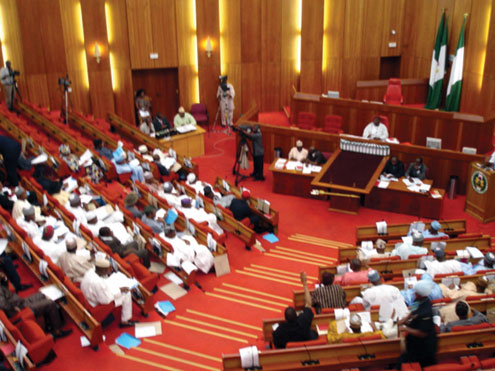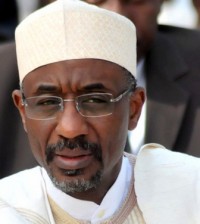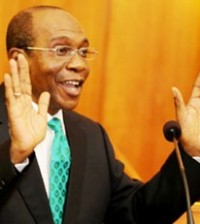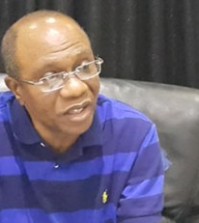Demand for dollar drops after elections
The amount of dollar sold at the Wholesale Dutch Auction System (WDAS) dropped by over 37 per cent on Wednesday, as pressure eased in the aftermath of the elections.
Dollar demand, which peaked at $586.4 million at the build-up to the election on March 28, has been on the decline in the last three weeks.
Only $277 million was demanded on Wednesday, out of which the Central Bank of Nigeria (CBN) sold $250 million. The CBN sold $400 million at the last auction held last week.
Auction at the bi-weekly trading did not hold on Monday due to the public holidays. The CBN has always insisted that the pressure on the naira would ease.
Reduced political risks
Analysts at Afrinvest, an investment banking firm, attributed the reduced speculative demand for the dollar to reduced political risks.
“A combination of reduced demand pressure and month-end dollar supplies by multinationals is expected to spur an appreciation in the value of the naira in the interbank market,” according to Afrinvest in its weekly report for last week.
However, this was not to be as the naira shed 16 kobo to close at N152.92. This is 2.51 per cent below the figure at which the naira opened at the beginning of the year.
In order to guard the naira, the CBN in March opened the currency forwards market to help currency traders “hedge against fluctuations in future exchange rates,” and to “mitigate the risk of an adverse currency movement.”
Analysts at FSDH Securities, a Lagos based financial advisory firm, said the depreciation in the value of the naira could have spiralling effects on inflation. According to them, there is need for specific policies aimed at reducing the import-dependency nature of the Nigerian economy.
“Implementation of only restrictive monetary measures to curb inflationary pressure will not guarantee the attainment and achievement of a sustainable single digit inflation rate in Nigeria,” it said in its report.
Investors’ appetite
The firm noted the recent rise in inflation rate and raised concerns about possible spill over effect on foreign exchange rate and bond yields in Nigeria over development in the United States bond market.
The CBN last month increased the benchmark interest rate to 7.5 per cent in response to inflation figures.
Eugene Ezenwa, the chief executive officer of PAC Securities Limited, a stockbroking firm, said the increase in the interest rate by the CBN will affect investors’ appetite for bonds instruments.
“There is need for the Securities and Exchange Commission, the CBN, and the Nigerian Stock Exchange to sit down and harmonise policies, knowing very well that what affects the money market equally affects the capital market, either directly or indirectly. If interest rate is going up it will affect the prices on the stock market,” Mr Ezenwa said.
According to him, raising interest rate affects investors’ investment decision.
“When you are raising interest rate, you must consider other markets that would experience either positive or negative shock. It is up to CBN to balance these positions.
“If you raise the interest rate, how will it affect the bond market? How will it affect the desire of government to raise bond to finance deficit, vis-a-vis the corporate bonds we are all clamouring for?” He said.
Source : 234next








